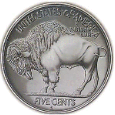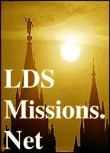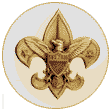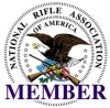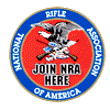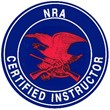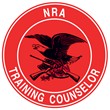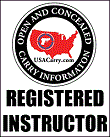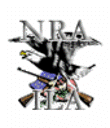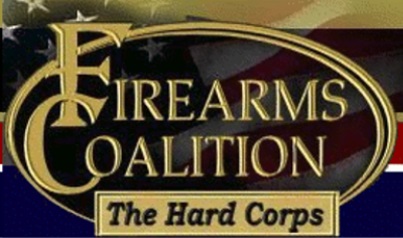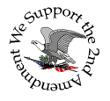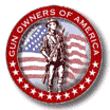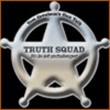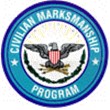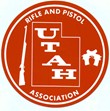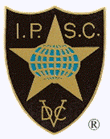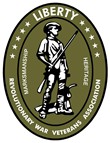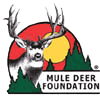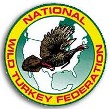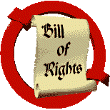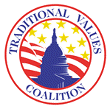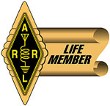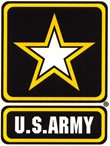| Mormon Prophet Joseph Smith received a revelation that he was to take a group of men up to Zion to redeem Zion. This was known as Zion's Camp. In 1834, the call went out for 500 men. On February 26, 1834, Joseph Smith started from Kirtland, Ohio to gather volunteers for Zion's Camp. About 200 responded. From these, Joseph organized an expedition to march one thousand miles from Kirtland, Ohio to Clay County, Missouri to provide aid to persecuted church members. This expedition, lasting from 5 May to 22 Jun 1834, proved to be an excellent leadership training experience for church leaders.
"On the 7th [of May, 1834], the Prophet Joseph organized the Camp . . . The day following we continued our journey. We pitched our tents at night and had prayers night and morning. The Prophet gave us our instructions every day . . . It was a great school for us to be led by a Prophet of God a thousand miles through cities, towns, villages, and through the wilderness." -- Wilford Woodruff: History of His Life and Labors, by Matthias Cowley, p. 40
"This circumstance alone would have made the journey worth any sacrifice. Joseph left Kirtland on the 5th of May of 1834 and the Camp was disorganized on the 3rd of July, 59 days later. During that time, many of the members of Zion’s Camp watched and learned from the Prophet constantly. They heard him prophesy and instruct and warn and encourage and rebuke. They saw him work when there was work to be done and they saw him go hungry when there was too little food. What a lesson they must have learned about servant leadership!" (Ted L. Gibbons, Desert Blossoms #60, 15 Oct 2002, http://www.ldsliving.com)
From the men participating in this march, the Prophet was told that the twelve apostles would be chosen and ordained. On February 14, 1835 by revelation the Lord commanded all those that took part in Zion's Camp to meet together so that the twelve apostles might be chosen. The three witnesses to the Book of Mormon had been promised in June 1829 that they would have the privilege of choosing the twelve apostles. (Doctrine & Covenants 18:37) At the meeting the three witnesses bowed in prayer for revelation and inspiration to make the correct-choice. Afterward they chose the twelve by inspiration, and then laid their hands on them with President Smith and ordained them.
Many other members of the church were tested by the Lord on this expedition and later chosen for key leadership roles. From the members of Zion’s Camp, nine of the original Twelve were chosen. All seven presidents and all sixty-three members of the First Quorum of Seventy were expedition members.
"As might be expected, food was a recurring problem for during the march to Missouri. On May 12, George A. Smith, the youngest member of the camp, recorded that for the first time in his life he had bread and uncooked pork for breakfast. Two days later, on the 14th, the supply of bread was exhausted. The commissary had expected to purchase needed supplies in Buchyrus, Ohio, but were unable to do so. This was the first recorded time that camp member Sylvester Smith complained. He felt as though preparations for the march had not been adequate. Joseph’s comment is simple: 'We discovered refractory feelings in Sylvester Smith.'" (History of the Church, Vol. 2, p. 65) (Ted L. Gibbons, Desert Blossoms #63, 5 Nov 2002, http://www.ldsliving.com)
"The refining furnace of this forced march was the kind of experience that would uncover a great many hidden inclinations. As Joseph notes correctly, Zion’s camp did not cause these feelings. It revealed them. On the 17th of May, just after the camp reached Ohio, there “was a difficulty between some of the brethren and Sylvester Smith, on occasion of which [Joseph] was called to decide in the matter." (Ted L. Gibbons, Desert Blossoms #63, 5 Nov 2002, http://www.ldsliving.com)
"Finding a rebellious spirit in Sylvester Smith, and to some extent in others, I told them they would meet with misfortunes, difficulties and hindrances, and said, 'and you will know it before you leave this place,' exhorting them to humble themselves before the Lord and become united, that they might not be scourged. A very singular occurrence took place that night and the next day, concerning our teams. On Sunday morning, when we arose, we found almost every horse in the camp so badly foundered that we could scarcely lead them a few rods to the water. The brethren then deeply realized the effects of discord. When I learned the fact, I exclaimed to the brethren, that for a witness that God overruled and had His eye upon them, all those who would humble themselves before the Lord should know that the hand of God was in this misfortune, and their horses should be restored to health immediately; and by twelve o'clock the same day the horses were as nimble as ever, with the exception of one of Sylvester Smith's, which soon afterwards died." (History of the Church, Vol.2, p.68)
During this expedition, the prophet also found opportunities to teach respect for all life:
In pitching my tent we found three massasaugas or prairie rattlesnakes, which the brethren were about to kill, but I said, "Let them alone -- don't hurt them! How will the serpent ever lose his venom, while the servants of God possess the same disposition, and continue to make war upon it? Men must become harmless, before the brute creation; and when men lose their vicious dispositions and cease to destroy the animal race, the lion and the lamb can dwell together, and the sucking child can play with the serpent in safety." The brethren took the serpents carefully on sticks and carried them across the creek. I exhorted the brethren not to kill a serpent, bird, or an animal of any kind during our journey unless it became necessary in order to preserve ourselves from hunger. (History of the Church, Vol.2, Ch.5, p.72)
Zions Camp clearly was a leadership training experience for the prophet as well as for the men who accompanied him on their march to Missouri. It was also an opportunity for the prophet to evaluate and prove each man's faithfulness, leadership ability, and selflessness. Most of the early members of the Quorum of the Twelve and the First Quorum of Seventy had served in Zion's Camp.
|
